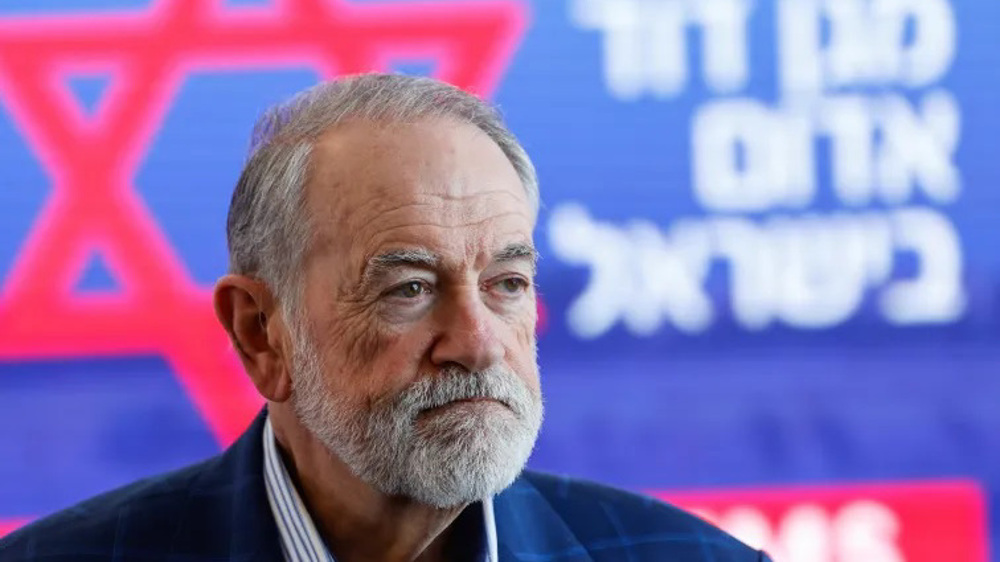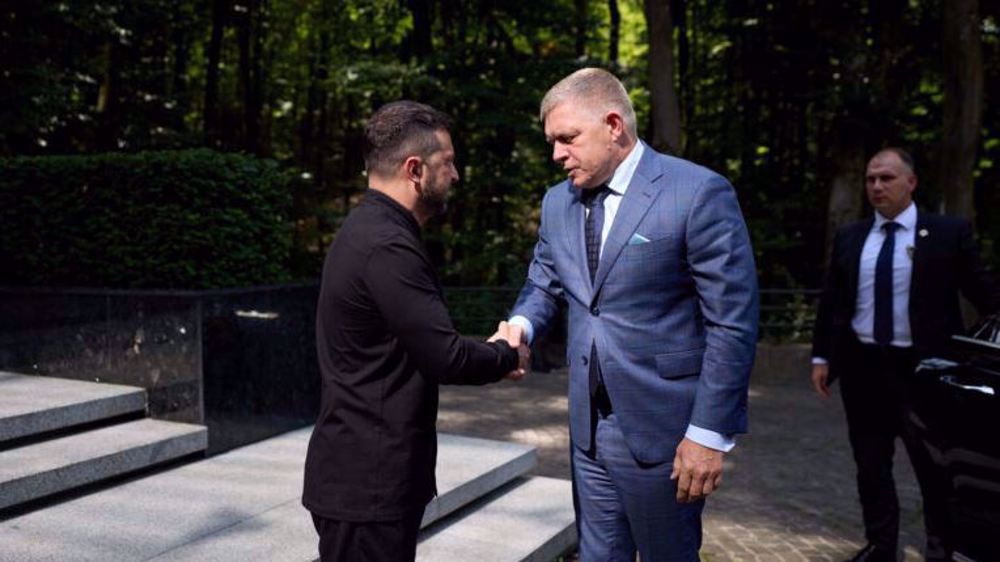Russia test fires nuclear-capable missiles amid rising tensions with US
Russia has test fired nuclear-capable ballistic missiles amid rising tensions with the US and its allies over Ukraine, saying it also successfully test-launched hypersonic and cruise missiles at sea and land-based targets during planned exercises by Russia's nuclear forces.
Russian President Vladimir Putin has sat observing the exercises on screens along with Belarusian President Alexander Lukashenko from what the Kremlin described as a "situation center".
Russia's defense ministry said in a statement that Saturday's "planned exercises" will test launches of ballistic and cruise missiles, adding that they would involve nearly all branches of the country’s armed forces, including its aerospace and strategic rocket forces, as well the Northern and Black Sea fleets, which have nuclear-armed submarines.
At a news conference on a visit to Lithuania, Pentagon chief Lloyd Austin said the nuclear exercises were stoking concern among defense leaders around the world. He claimed he was worried about the risks of carrying out the drills at the same time that Russia's military was focused on a massive build-up of forces around Ukraine.
"When you layer on top of that a very sophisticated exercise with strategic nuclear forces, that makes things complicated to the degree that you could have an accident or a mistake." Austin said Russian forces were beginning to "uncoil and move closer" to the border with Ukraine, expressing hope that Putin "steps back from the brink of conflict."
The drills follow a huge series of maneuvers by Russia's armed forces in the past four months that have included the build-up of troops near Ukraine.
Civilians flee to Russia
On Saturday, civilians were evacuated from the self-proclaimed Donetsk People's Republic and surrounding areas, following a sharp increase in shelling by Kiev in the Donbass region.
A video released on Saturday showed civilians lining up at a checkpoint on the Russian border, as several buses were seen leaving for Russia.
Separatist leaders announced plans to evacuate about 700,000 people on Friday evening. Russian news agencies said on Saturday 10,000 evacuees had arrived in Russia.
The mass evacuation started after ethnic Russians in Ukraine’s two regions of Donetsk and Luhansk -- collectively known as the Donbass -- said government forces had repeatedly attacked them over the past two days, raising fears of an imminent war amid tensions between Russia and the West.
After the evacuation announcement, warning sirens sounded in the two Moscow-backed breakaway regions. But Ukrainian officials insisted they had no plans to launch any assault, accusing Moscow of creating pretexts for an invasion.
Russia has already voiced concern about the circumstances in eastern Ukraine, saying the situation looks potentially "very dangerous".
Donetsk and Luhansk were turned into self-proclaimed republics by ethnic Russians in 2014. That led to a bloody conflict between the government forces and armed separatists.
Ukraine, as well as the European Union (EU) and the United States, claims Russia has a hand in the conflict that erupted in Donbass. Moscow denies the allegation. So far more than 14,000 people have been killed as a result.
The armed conflict began when a wave of protests in Ukraine overthrew a democratically-elected pro-Russia government and replaced it with a pro-West administration. The majority in those areas refused to endorse the new administration.
Russia and NATO are at odds over Ukraine. Western countries accuse Russia of preparing for an invasion of Ukraine by massing 150,000 troops and armaments near the border with that country. Russia has rejected the claim, saying the military build-up is defensive in nature.
In a major step to de-escalate, Moscow announced last week that some of the troops deployed in areas bordering Ukraine would return to their bases. It also released footage showing tanks and armored vehicles being loaded onto railway flatcars. The US and its NATO allies, however, claim they have seen no significant withdrawal of Russian troops from Ukraine's border.
Putin has warned that the US is deliberately designing a scenario to lure Russia into a war over Ukraine, as the Kremlin has repeatedly reiterated that the expansion of the NATO military infrastructure in Ukraine constitutes a red line for Moscow and that any future expansion must exclude Ukraine and other former Soviet countries.
Moscow-based analysts said the Saturday exercises were a "signal" to take Russia's demands for security guarantees seriously.
"The signal to the West is not so much 'don't interfere', but instead designed to say that the problem is not Ukraine and actually much wider," Dmitry Stefanovich, a research fellow at the IMEMO RAS think tank, told Reuters.
Russia has demanded legally binding guarantees from NATO that it will halt its eastward expansion and return to its 1997 borders. It also demanded that the military alliance never admit Ukraine as a member. However, the Kremlin says Russia's main security demands have not been taken into account by the US after Washington delivered written replies to Moscow.
Separately on Saturday, the Ukrainian military said two soldiers were killed and four wounded in an alleged shelling by pro-Russia forces in the country’s volatile east.
The military claimed the fatalities took place early on Saturday when the pro-Russia separatists opened fire on more than 20 settlements and residences in eastern Ukraine, using heavy guns and artillery.
"As a result of a shelling attack, one Ukrainian soldier received a fatal shrapnel wound," the joint military command for east Ukraine said in a statement.
Meanwhile, the leadership of eastern regions of Lugansk and Donetsk, who have accused Ukrainian forces of trying to retake their two regions by force, called the situation "critical" and announced a "general mobilization" in response to the Ukrainian military offensives.
"I urge my fellow citizens who are in the reserves to come to military conscription offices. Today I signed a decree on general mobilization," Denis Pushilin, the leader of the Donetsk People's Republic, said in a video statement.
Pushilin stressed that his region's forces had prevented attacks planned by Ukrainian security services, and that Kiev forces had continued their offensives.
"Together, we will achieve for all of us the victory we desire and need. We will protect Donbas and all Russian people," Pushilin added.
The leader of the Lugansk region, Leonid Pasechnik, also published a decree saying the measure in his region was signed to prepare for "repelling aggression.”
Despite Leader's martyrdom, Islamic Republic firmly in control and punishing the enemy
At least 7 killed in Israeli aggression on southern Lebanon after Hezbollah strikes
Iran writes to UN, warns about dire consequences for perpetrators following Leader's martyrdom
Hezbollah strikes occupied Haifa in retaliation for Leader's assassination
Ansarullah mourns Leader's martyrdom as 'great loss' caused by 'most wretched terrorists'
Hezbollah offers condolences to Iranian nation over Leader’s martyrdom
US-Israeli strike targets IRIB facility; broadcasts continue
IRGC: Latest waves of Op. True Promise 4 led to tanker strikes, base shutdowns, heavy casualties















 This makes it easy to access the Press TV website
This makes it easy to access the Press TV website